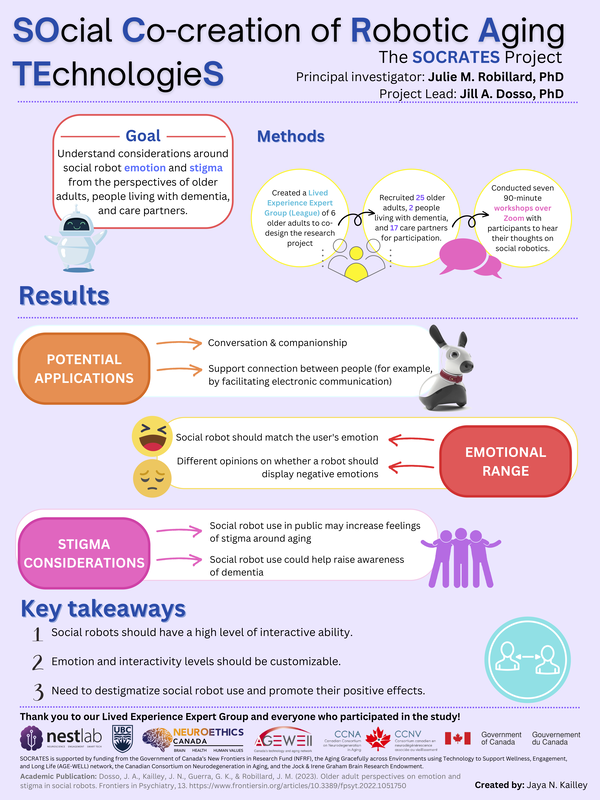The DISRUPT project aims to co-create a blueprint for the development of social robots for older adults.
|
Why is this research important?
Social robots have huge potential to support older adults. They are interactive, can be used to help with activities of daily living, and may reduce stress and loneliness. However, despite their benefits, few older adults use them. This project explores barriers and facilitators for social robot use and collaborates with experts and persons with lived experience to co-design a new method for developing social robots. DISRUPT showcases the benefit of working with older adults as partners in research. What did we do? We established an older adult advisory group, ‘The League’. League members provide valuable insights and expertise that ensure our research remains meaningful and reflective of older adults’ needs, values, and preferences. We conducted surveys, co-creation workshops, and focus groups to explore key issues around the use of social robotic technologies from the perspectives of older adults, people living with dementia, and their care partners. What did we find? Our research reveals that older adults:
|
Publications & Media
Team Members
Co-Investigators:
Dr. Jesse Hoey (Co-investigator – University of Waterloo)
Dr. François Michaud (Co-investigator – University of Sherbrooke)
Dr. Tony Prescott (Partner - Consequential Robotics)
Dr. Chris Nugent (Partner - Smart Environments Research Group, University of Ulster)
The League (Lived Experience Expert Group)
- Ian Goldman
- Wilfred Lach
- Eugenie Wong
- Marion George
- Jim Mann















